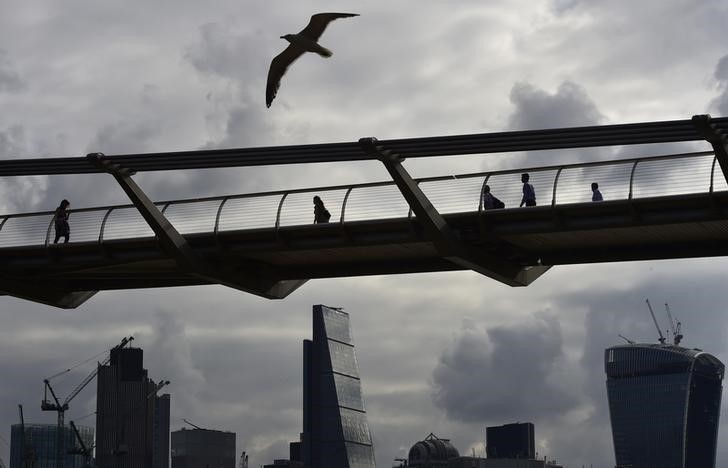By William Schomberg and Andy Bruce
LONDON (Reuters) - Britain's unemployment rate rose for the first time in more than two years, data showed on Wednesday, but faster growth in earnings means the Bank of England is likely to keep signalling an interest rate hike is approaching.
The Office for National Statistics said the unemployment rate edged up to 5.6 percent in the three months to May as the number of people in employment fell by 67,000, primarily because of fewer part-time workers.
Economists had expected the rate to remain stable at 5.5 percent. Sterling initially fell by about half a cent against the dollar and British government bond prices rose.
It was the first time the jobless rate had risen since early 2013, shortly before Britain's economy started to recover from the effects of the financial crisis.
Wednesday's data also suggested the labour market remained weaker in June when the number of people claiming unemployment benefit rose by 7,000, the first increase since October 2012.
"It is possible that the rate of improvement in the labour market that we have seen over the last three years may have eased off, though it is much too early to be certain," Nick Palmer, an ONS statistician, said.
EARNINGS BOOST
Total average weekly earnings in the three months to May, including bonuses, rose by 3.2 percent compared with the same period a year earlier, up from 2.7 percent in the three months to April.
It was the biggest increase in total pay over a three-month period since April 2010, the ONS said.
Excluding bonuses, pay rose by 2.8 percent, the biggest increase in more than six years.
Economists taking part in a Reuters poll had forecast total earnings would rise by 3.3 percent and that earnings excluding bonuses would increase by 3.0 percent.
The Bank of England is keeping a close eye on wages as it considers when to start raising interest rates from their record low of 0.5 percent.
The Bank's governor, Mark Carney, said on Tuesday that earnings data up to April had been a touch firmer than the central bank expected and he reiterated his view that a first rate increase since the financial crisis was "moving closer."
Another BoE policymaker, David Miles, went further, saying it would be "a bad mistake" to wait too long before raising.
James Knightley, an economist with ING in London, said Wednesday's data supported the BoE's broader stance but .
"With the UK economy dominated by the service sector and might temper rate hike expectations and the recent rise in sterling.

The recovery in earnings and near-zero inflation is boosting the spending power of British households after their living standards worsened over the past five years. Consumer prices were unchanged in the 12 months to June, data showed on Tuesday.